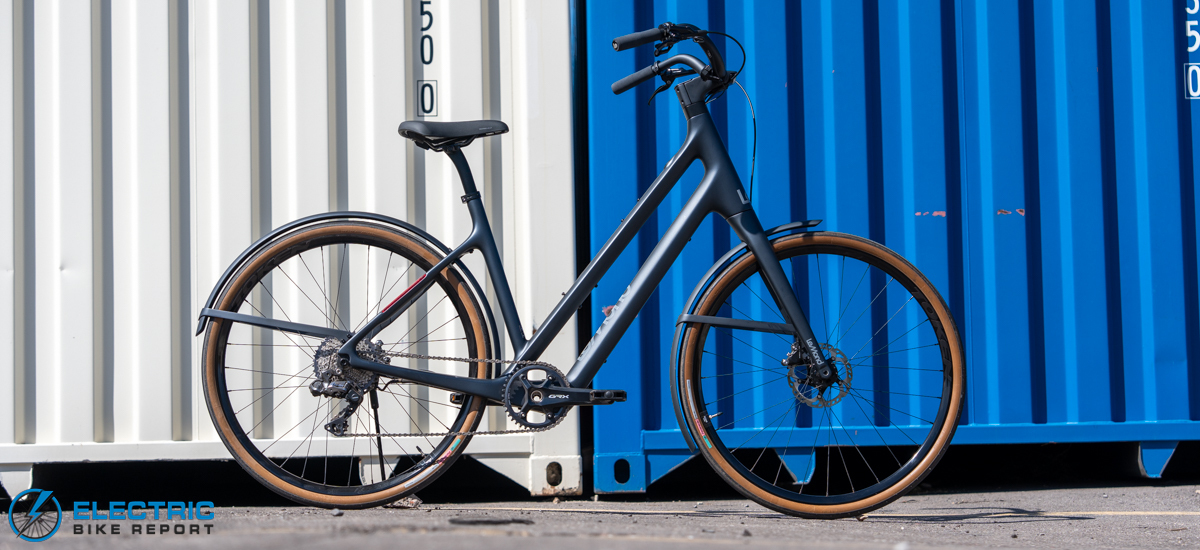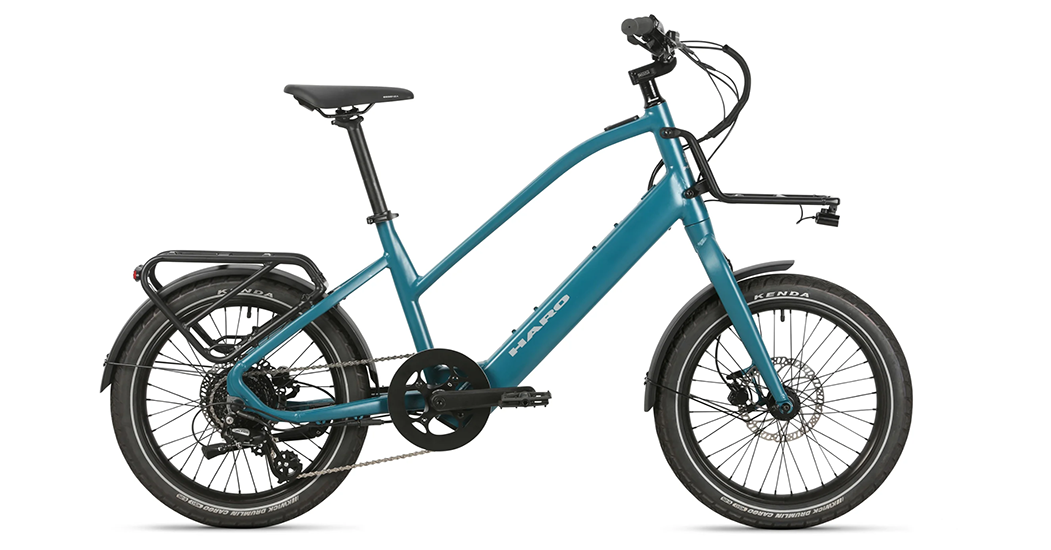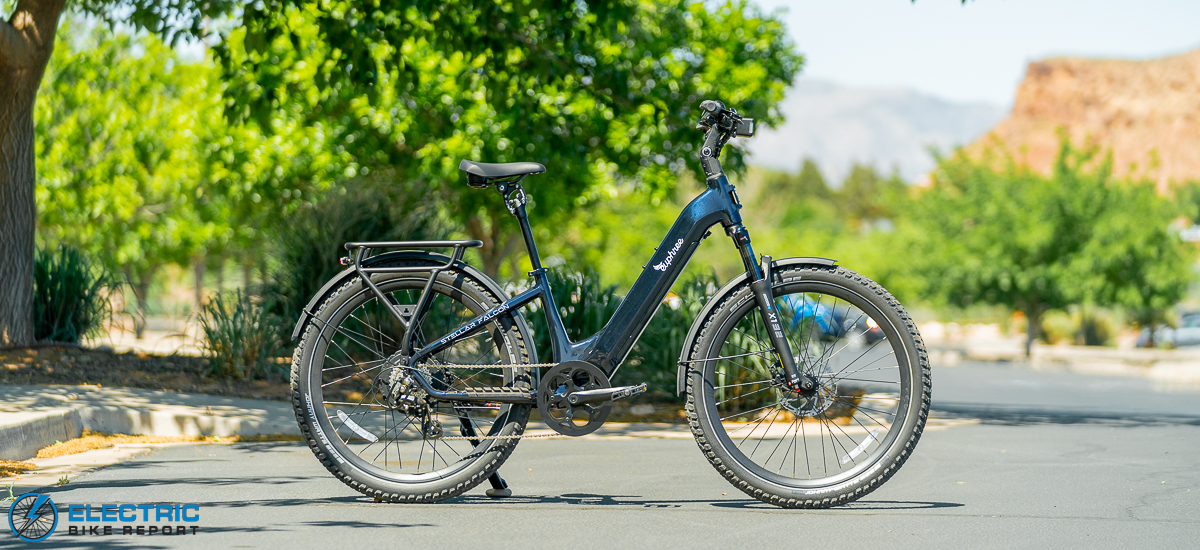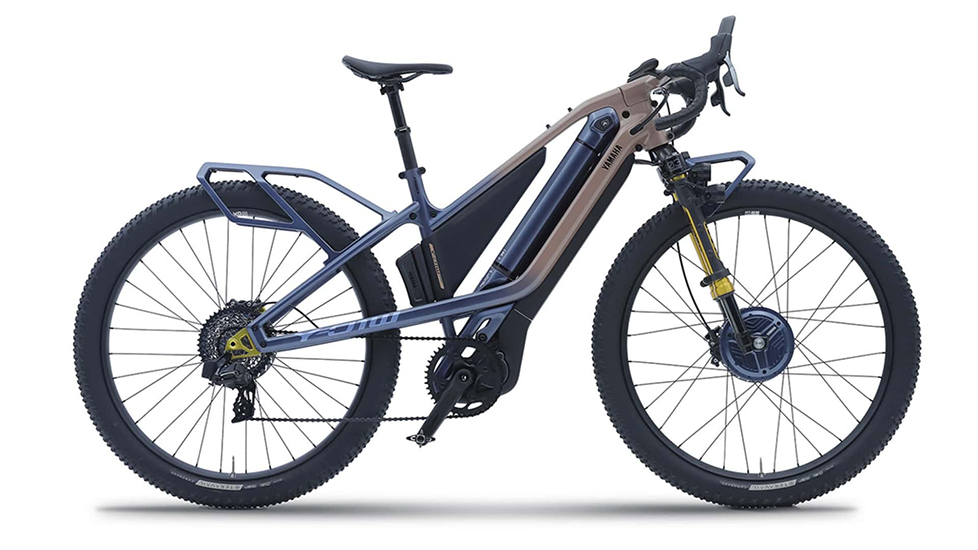
Some links may be affiliate links. We may get paid if you buy something or take an action after clicking one of these.


We note that some negative news – the growth in NYC cycling accident stats – could reflect the wider positive news that cycling has undergone a recent boom in the US and that the convenience and speed offered by e-bikes, especially in big urban areas where most of the boom has occurred, is undoubtedly a contributing factor. Not only are e-bikes convenient, they are fun to ride – as shown by our story on the fact type 2 diabetes sufferers find it a great way to get exercise.
In this week’s e-bike news:
- Maven’s new e-cargobike for women and smaller riders
- Addmotor’s small e-cargobike with a huge battery capacity
- Yamaha reveals two wheel drive and assisted steering tech
- Battery regulation may happen in 2025
- NYC – a call for more protected bike lanes
- From the UK – health benefits of e-bikes
Maven – An E-cargobike for Women


Integral Electronics “designed the Maven so that women and shorter riders can confidently carry cargo. Built for sharing, this cargo e-bike also meets the specifications of taller partners and veteran cyclists.”
The 20” wheel design and low-step frame with 750W rear hub motor are certainly key features of keeping the bike’s centre of gravity low and easy to use for shorter riders as well as taller ones – the company says rider height range is 5’0″ to 6’7″ (152 to 200 cm). That’s partly facilitated by use of a dropper seat post and adjustable handlebar position.
It has some neat other practical features too on top of the small-rider-friendly design like double batteries, powerful lights with indicators and a throttle control.
Discounted prices currently start at $1,999 as quoted on Kickstarter with a February 2024 slated delivery date.
Addmotor Graoopro
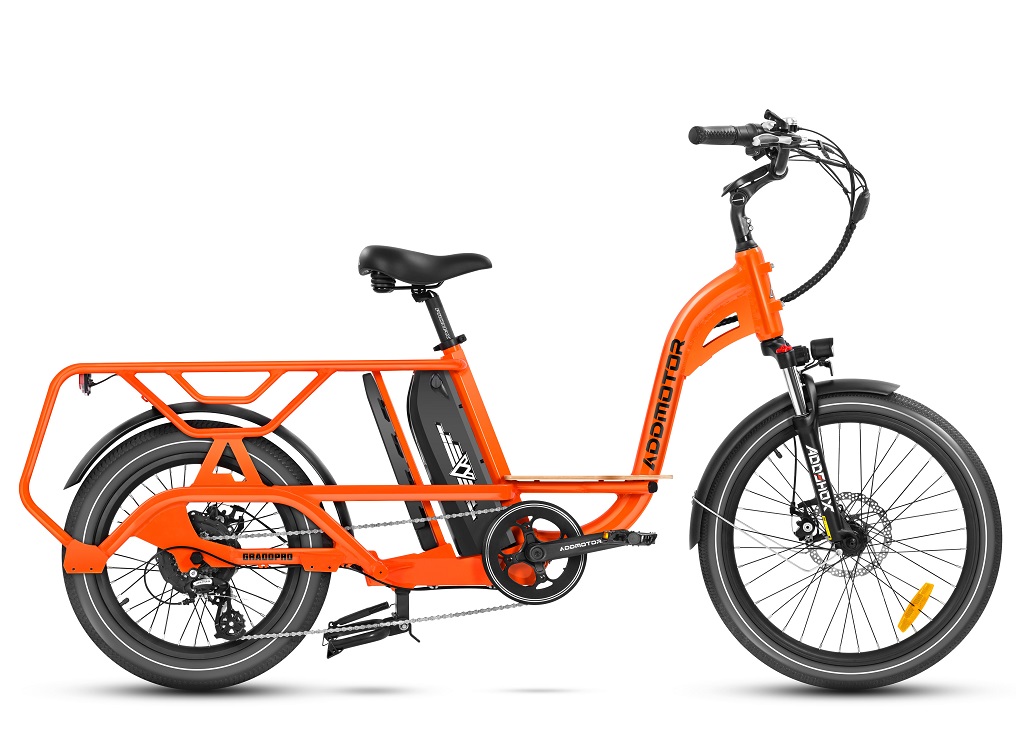

A potential competitor to the Maven is the new Addmotor Graoopro. It also is a step-thru, smaller-wheeled design with a rear hub motor and it has the option of a second battery, though the standard offering of a single 960Wh unit should be adequate for most riders. And like the Maven, it has turn signals.
Payload capacity is claimed at 450lbs / 204kg and there is also a twistgrip throttle and torque sensor for smooth pedelec style riding. It’s now available for pre-order and Addmotor says it ‘ships in November’.
Does Yamaha’s Future Tech Really Point the Way to the Future?
Yamaha is set to premiere a couple of pieces of future e-bike tech at the forthcoming Japan Mobility Show according to Insideevs.
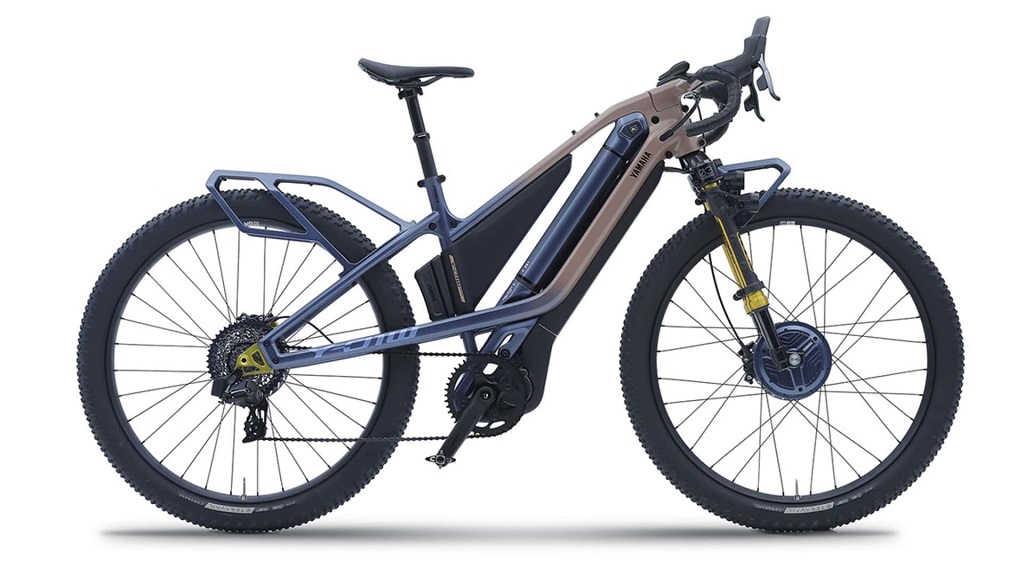

Their Y-01W AWD ‘features two electric motors – one on each wheel, so yes, it’s an all-wheel-drive e-bike. Complementing the two motors is not one, but two batteries, promising long-distance rides in between charges.’ It is being billed as an e-gravel bike with the motors driving different wheels presumably meaning better traction as an ‘All Wheel Drive’ (AWD). Intriguingly the article adds ‘The concept model is expected to be classified as a speed pedelec in the European market, meaning it’ll have an assisted top speed in excess of 25 kmh (15 mph).’
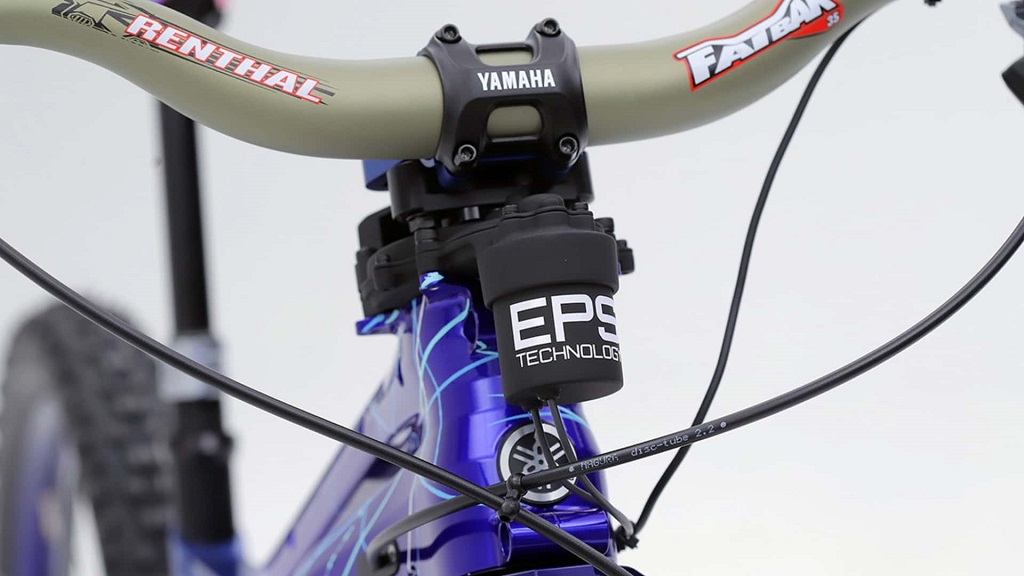

In contrast the Y-00Z MTB is a full-on e-mtb ‘that makes use of a fancy electronic power steering system’. As the article says, visually there isn’t much to distinguish the Y-00Z MTB from a regular e-mtb as the power steering is mainly in the headtube. As the article also notes heavy steering is generally not a problem, even on e-mtbs, so it will be interesting to learn more what Yamaha thinks it’s potential value actually is.
CPSC May Regulate Electric Micromoblity Devices – But No Time Soon
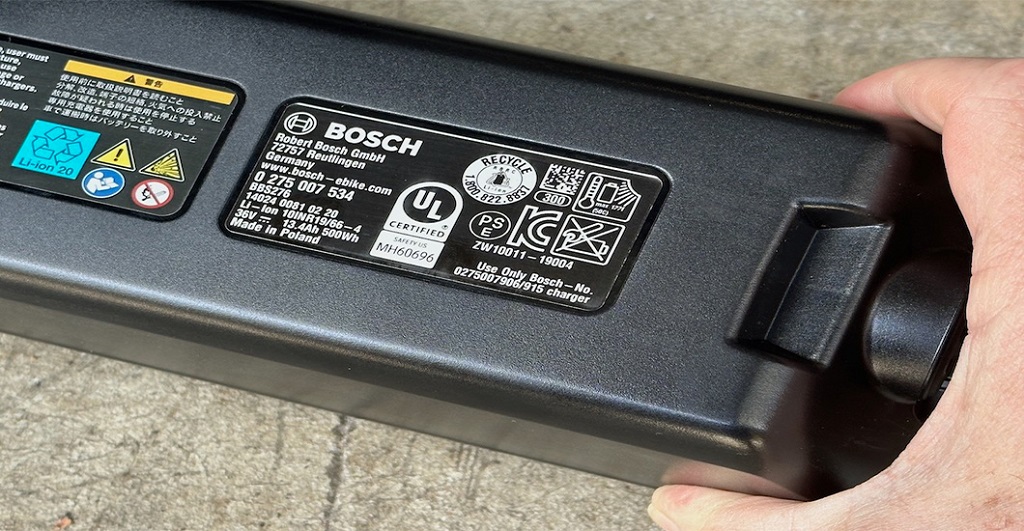

Bicycle & Retailer Industry News (BRAIN) reports ‘ The Consumer Product Safety Commission will consider regulating micromobility devices, including e-bikes, but don’t expect anything final to come before 2025.’
Under pressure from some in the e-bike and e-scooter industry to introduce mandatory standards for batteries to head off a recent increase in lithium battery fires, with Commissioner Mary T. Boyle stating “We’re going to propose mandatory requirements for batteries in micromobility products. But it’s going to take a while.”
Future developments are likely to centre on existing (but voluntary) standards UL 2271 and UL 2849 and we explain the complexities of that in our article here. In short the former is for the battery only and the latter for the whole e-bike electronic system including the battery and motor plus other connected elements.
Plea for More Protected Cycle Lanes Supported by Fatality Stats
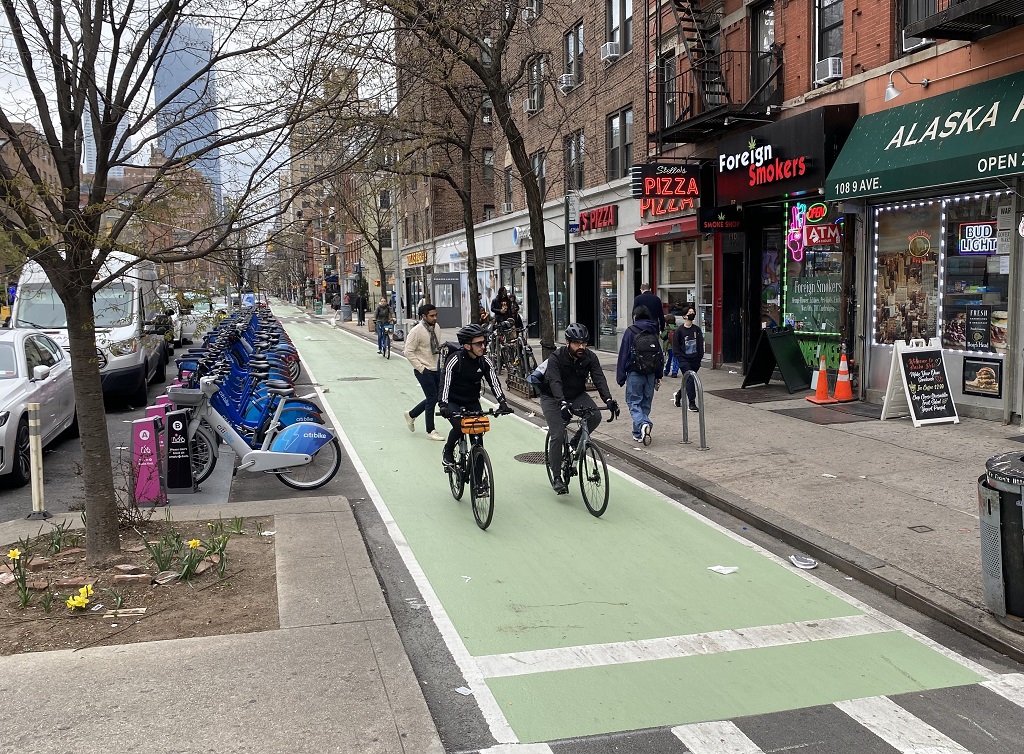

Streetsblog reports ‘Traffic crashes in New York City killed more cyclists through the first nine months of 2023 than all but one other year on record — and 94 percent of the victims were killed on street without protected bike lanes, according to a new report from Transportation Alternatives that places responsibility for the crisis squarely on Mayor Adams.’
The article also states ‘Adams’s record as mayor has so far failed to live up to his campaign promise to add 75 miles of new protected bike lanes annually over his four-year term.’
Whilst in an ideal world NYC road fatalities would be zero, the stubborn refusal of cycling fatalities in New York certainly doesn’t mean it is getting more dangerous for cyclists – indeed the opposite could be the case. As Momentum mag reports on the recent US bike boom, ‘New York City took the lead in growth, nearly doubling its average daily bike volume in 2022 compared to 2019. Western metros, including San Diego, Bakersfield, and Las Vegas, followed NYC in terms of growth over the three-year period.’ So it could easily be that biking is getting safer per mile cycled despite rising accident stats.
E-bikes Medical Benefits
Despite the news from New York it’s clearly the case that e-bikes are – looked at in the round – life enhancing machines. And a couple of stories from the UK’s ebiketips certainly suggest this:
‘A University of Bristol study into the enjoyment levels of e-bike riding among adults with type 2 diabetes has found that “engaging in e-cycling was perceived as an easier way of managing their diabetes than diet or other types of exercise, largely due to the enjoyment of riding” says this recent article.
There’s also the news that ‘Bristol researchers are looking for breast cancer patients to take part in an e-bike study. Researchers from Bristol’s Centre for Exercise, Nutrition and Health Sciences will look at whether a 12-week individualised e-bike programme is suitable for people with or who have been treated for breast cancer, and if they can finish the programme.’
Reader Interactions
![]()
![]()

